I had a classic ADHD childhood
I had boundless energy that I channeled into serial passion projects; reading everything I could get my hands on about dinosaurs, aviation, World War 2 history, and even studying Islam for a while. I designed spaceships, created amateur action movies, and wrote science fiction stories as a creative outlet. I practiced Tae Kwon Do, Karate, swordsmanship, and breakdancing.
Perpetually a starter, rarely a finisher.
The only thing consistent was my bad grades. I was moved from special ed program to special ed program. I lacked social calibration though I constantly tried to ingratiate myself with the most elite social group I could find. I was constantly trying to upgrade my social circle, but I didn't have what it took to be one of the cool kids, and frequently found myself an outsider and a loner.
I was diagnosed with ADHD at age 8 and given Ritalin.
It helped a lot. Without it, a younger version of myself found it nearly impossible to focus for more than five minutes on the lessons and educational material my grade school teachers presented.
In an age when ADHD (back then they called it ADD) was misdiagnosed and the pharmaceutical solutions were overprescribed, I think I was a legitimate case. In high school, I switched to Adderall, which seemed to imbue a longer-lasting focus, along with a more relaxed and tranquil mindset. I wasn't in such a hurry to impress people, which helped me make more genuine friendships
Medication is probably one of the main factors that allowed me to attain a Black Belt in Tae Kwon Do and graduate high school.
As a young adult
I was very ambitious and a voracious student of success, yet I had a nearly five-year streak of non-stop career failures. I had been fired more times than I can count on two hands; I just couldn't quite cut it as a waiter, car salesman, mortgage broker, banker, or in Yellow Pages sales. I had a lot of trouble paying my bills on time; I was constantly late on rent and I even managed to get in some real legal trouble over some unpaid speeding tickets.
While my social life was a whole lot more lively (thanks partially to my side hustle as a nightclub promoter), my dating life was inconsistent and I could not hold onto a girlfriend. I would occasionally get my hands on a bottle of Adderall, which seemed to make quite a difference in my performance at work, but crushing personal and career disappointments were always just around the corner.
I was constantly reading inspirational books and trying to apply what they said about business ethics and providing value but it never paid off. I was perpetually a minute late and a dollar short; late to work, late to meetings, late on rent, and not hitting sales quotas. While I was building a large social circle and social media "friend count" through my nightclub promotion, the relationships were shallow. Also, being a nightclub promoter, I was hungover and underslept half the time which took a toll on my real career in corporate America. I was having fun and learning a lot but my prospects for the future were pretty bleak. My mediocre career and personal life were a case study of lack of focus, follow-through, and my equivocations of standards in every domain of life.
Fast forward to my 30s
Now I'm really a different person; I'm one of the most disciplined and consistent people I know. I'm a long-term strategist, not a short-term opportunist. I'm more focused and motivated than I've ever been. I have developed a work ethic that's pretty rare in my generation. My fleeting obsession with passion projects has been replaced with a long-term commitment to processes. I've cured my adult ADHD.
There are four pillars that I have to thank for this transformation...
Nootropics
Smart drugs have replaced Adderall and Ritalin as my pharmacological enablers of normality. The popular ADHD drugs are demonized quite a bit now, and I realize that their amphetamine-driven mechanisms are bad for a lot of people but the truth is that I never experienced anything negative from them, all they ever did was help me. My subjective experience of Nootropics closely matches that of the popular ADHD drugs and the beneficial effects are the same...
Motivation
Focus
Imperviousness to distraction
A kick of energy
And a positive mood
I've tried over 80 different types of Nootropics over 6 years now (update: over 200 in 12 years) and have figured out that what works best is to cycle Nootropics, rarely taking the same thing more than two or three times a week to avoid building up a tolerance to a particular cognitive enhancer or burning out a neurobiological mechanism.
The Racetams are a pretty good place to start, this is the most proven category of smart drugs. There's a particular self-experimentation process, called the Piracetam Protocol, that I recommend highly for optimizing the dosages for your own neurobiology of five different synergistic smart drugs.
The Adaptogens, are a category of Nutraceuticals that come from the natural world, which Biohack our hormones and nervous systems to help us respond more robustly to the demands of life.
I've used most of the popular Nootropic stack products - and a few are quite good. Although you'll need to take them in higher quantities, which will end up probably being a $40-$80 a month habit.
I think that Nootropics are superior as a promoter of more holistic thought, you'll hear a lot of people say things like, I did some Adderall, got super focused, and then I cleaned my house for several hours, and got it immaculate!
To me that is silly, I would never waste the enhanced cognitive horsepower on something like cleaning the house! Nootropics make me focused on what I'm doing at the moment, impervious to distraction but at the same time allow me to focus my mental energies on solving important problems.
ADHD medication is pretty inexpensive, especially if your insurance helps pay for it, if you want to get your Nootropic habit down to the same cost, you'll probably need to order powdered Nootropics in a little larger quantities. It's doubtful that your insurance is going to cover Nootropics, so the only disadvantage of switching to Nootropics is economic.
Brain Training
I know what you are probably thinking; my brain already gets enough training from my challenging job, intensive studies, or demanding family life!
Do you get the same exercise from walking to work as you do from a CrossFit class? Is a guy who works for a moving company lifting furniture every day going to be able to compete in a bodybuilding competition with a guy who spends hours a week doing sophisticated exercises with kettlebells under the watchful tutelage of a personal trainer? Doubtful! We've all known waiters who were totally out of shape despite spending all day on their feet running from the front of the house to the back of the house carrying armfuls of plates. The brain is like any other part of the body in that it will adapt and grow if you apply acute, exerting demands upon it and that's exactly what brain training does.
I've self-experimented with multiple brain training games, software, and apps (including Lumosity) and there's one that I think is worthwhile, it measurably (and noticeably) improves working memory capacity after about 2-3 weeks of training. It's called Dual N-Back, as it challenges visuospatial and auditory memory simultaneously. It essentially upgrades the RAM of your conscious mind by forcing you to be ultra-focused on keeping track of visuospatial and auditory matches, it gets progressively more difficult as you improve and it is one of the most mentally challenging things I've habituated.

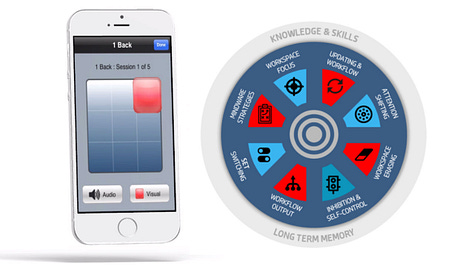
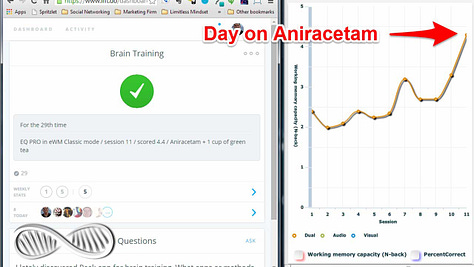
My subjective experience of Dual N-Back has been that it improves my ability to emotionally compartmentalize and stay focused. Before I made a habit of daily Dual N-Back, I didn't realize how much my internal dialog of thoughts affected my quality of focus. I'm not saying that I'm Mr. Positivity all the time now but it's given me a degree of control of my negative thoughts that I didn't know could exist. From time to time, I will cycle off Nootropics for a month or two and Dual N-Back keeps my powers of focus sharp.
The bad news is that it's boring, it's not like a fun video game although it is the only brain training task that's been demonstrated in studies to have transfer effects to the rest of your life. It's like any other strenuous exercise in that it's not exactly fun when you are doing it but it makes you stronger in the long term. You can download an unlimited free demo for iPhone or Android here. It only takes 10 minutes a day and it makes you a more focused and emotionally resilient version of yourself.
Mindfulness
Daily meditation practice has made a big difference in my adult ADHD. Now a lot of people are going to confuse their preferred flow state activities with mindfulness; Going to the gym, dancing, fishing, making music or art (or love!) is my meditative activity. I don't need meditation.
These are all fairly high-stimulus activities, whereas mediation is a zero-stimulus activity. Meditation is the art of manifesting happiness all on your own.
Meditation more than anything else teaches you to deal with emotional and physical fidgetiness. Which is something that's been a challenge for me for as long as I can remember. Meditation empowers Stoicism in that it makes me comfortable with being uncomfortable. It's made me less of a wimp.
I could not just dive right into meditation - thinking about not thinking - I tried it a couple of times and my focus muscles were so undeveloped that I just found it frustrating and boring.
I started with brain training which itself is a high stimulus activity, the Dual N-Back task (mentioned earlier) takes up 100% of your focused attention, but it teaches you to maintain persistent focus on the present moment.
From there I moved on to Heart Rate Variability training with the Heartmath biofeedback devices, which are pieces of biofeedback technology that train coherence between the heart and the nervous system. HRV devices have been demonstrated in human studies with police forces to train officers to improve their decision-making while under stress. I recommend it if you can afford it!
If you can't there are a couple of cool free HRV smartphone measurement apps, that I recommend in the Caballo Protocol, which is the 5-part DIY self-experimentation protocol for determining the impact of smart drugs on your system.
Finally, I found the Blue Sky Meditation Protocol (which gives your mind the foreplay it needs...) which I habituated using the Headspace and Coach.me apps.
Lidia Zylowska, M.D. who authored a book entitled, The Mindfulness Prescription for Adult ADHD, conducted a study with 25 adults and 8 adolescents who had ADHD. She concluded, recognizing the initial difficulty that those with ADHD face when getting started with mindfulness:
"that it is feasible to teach people with ADHD mindfulness. On the surface, it looks like a contradiction, but if you look at it, if you look at the nature of self-regulation, it’s not”
My self-tracking produced an interesting insight, 10 minutes of meditation focusing on profound breathing was a positive influence tantamount to diet, and whatever smart drugs I had consumed. In my daily brain training, I tracked some different lifestyle factors to see what resulted in me performing at my cognitive best; A lot of the results were kind of what you would expect...
My scores were better after a meal than they were if I was hungry.
A meal of vegetables, protein, and healthy fats was better than sweets, bread, or carbs.
Nootropics make a difference for 4-6 hours.
The Racetams are better than caffeine.
Interestingly I found that doing 10 minutes of meditation had the same positive effect on my brain training scores directly following meditation as taking pretty hardcore smart drugs like Phenylpiracetam and Caballo. So meditation imbues a cognitive performance high for 15-20 minutes.
Entrepreneurship and Travel
You've probably heard before that Entrepreneurship is conducive to the ADHD personality. I'm not sure if that's the case; I honestly think that boring people who do as they say and say as they do generally make the best Entrepreneurs. I'll put my money on the tortoise, not the hare. But in my case, I think I would have led an unsatisfying and mediocre career if I had not embraced and doubled down on Entrepreneurship. Entrepreneurship in combination with the Biohacking strategies and tools discussed above has given me an outlet for my passion and creativity.
I had to work at least part-time on my online business, LimitlessMindset.com about three and a half years before it started paying dividends. This is in huge contrast to the short-term attention span that a younger version of myself had; every few weeks I would feel the need to start another project. My Godaddy account was a boulevard of broken dreams, full of domain names I'd registered for projects that I worked on for a few weeks and moved on to the next shiny object.
I've been a digital nomad for about half a decade, which did quite a lot for satiating my voracious appetite for novelty. Since I'm constantly changing scenery; countries, cities, neighborhoods, languages, and cultures I don't get bored. Being a permanent traveler is not nearly as glamorous as it sounds; it entails some inconvenient sacrifices and more loneliness than you might think.
If I wasn't a professional wanderer, I would have had to find an equally stimulating source of novelty and adventure; I'm not sure what that would be.
In the comments here...
Let me know if you were diagnosed with ADHD. Did you grow out of it? How have you dealt with it?
Support me on Substack? For $7/monthly?
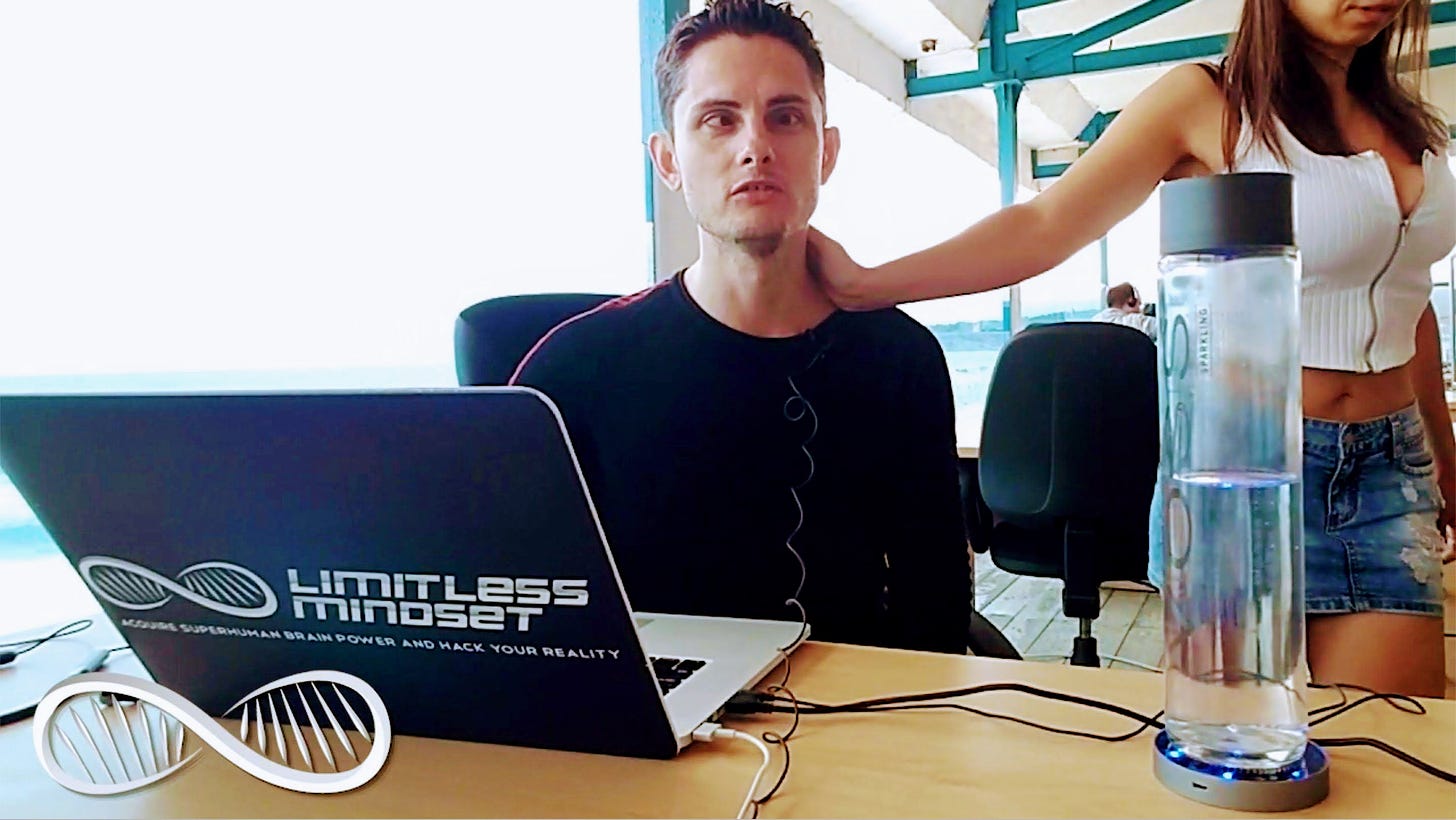


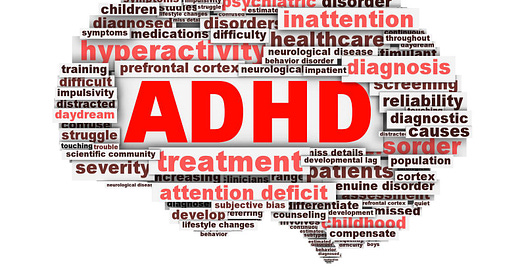


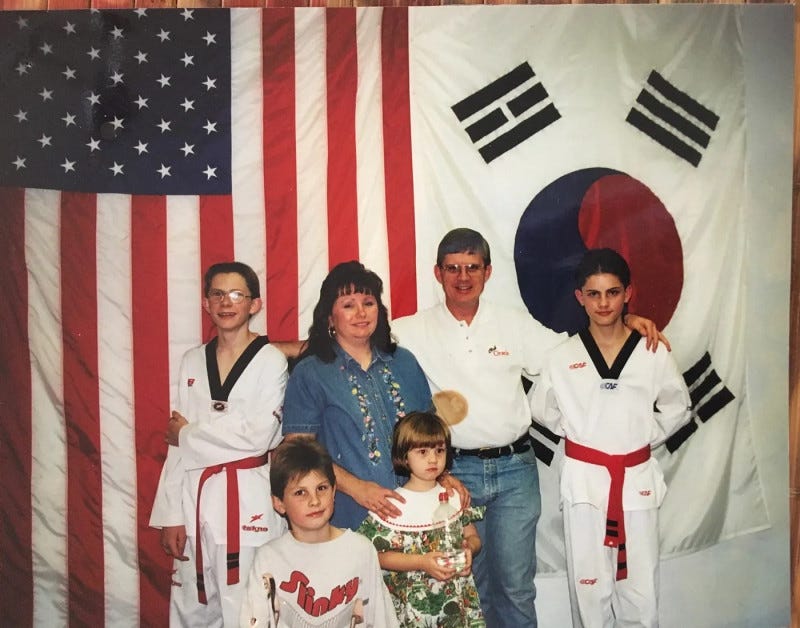
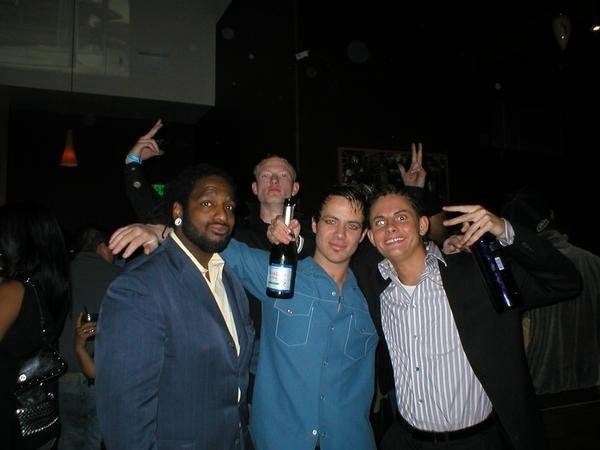
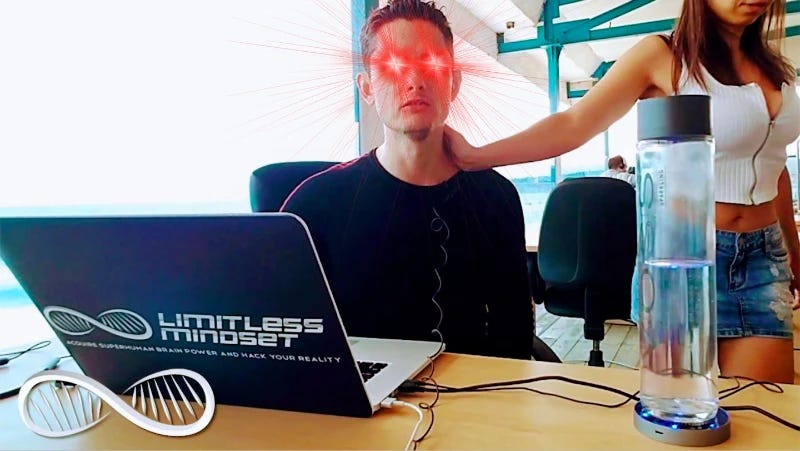
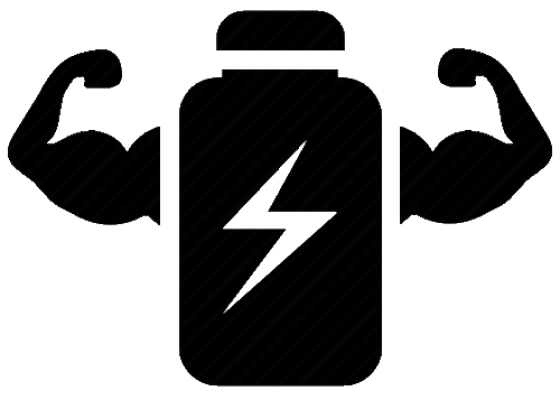
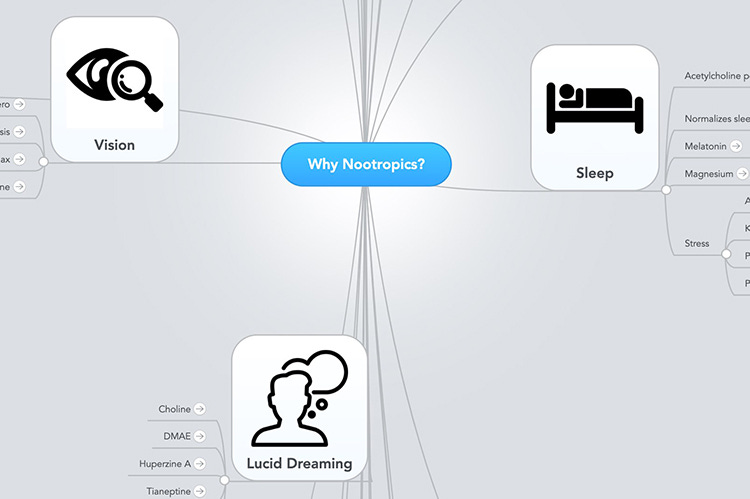




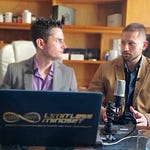




Share this post